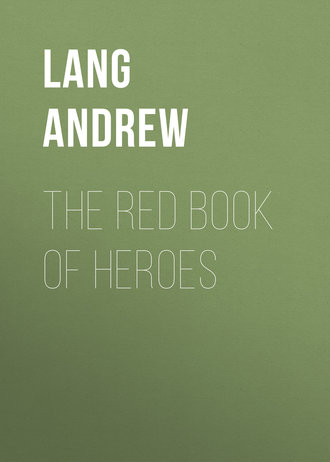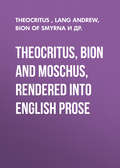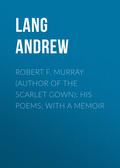
Lang Andrew
The Red Book of Heroes
The enemy's rout was complete, even before our guns had reached the field of battle. Next morning the news was brought in that while the battle for the deliverance was being fought the women and children inside the walls had been shot by order of the Nana. And, as a final blow, when, the day after, the victor rode through the gate of Cawnpore, a messenger came to tell him that his old friend sir Henry Lawrence, the defender of Lucknow, had been struck by a shell a fortnight previously, and had died two days later in great agony.
'Put on my tombstone,' he gasped in an interval of pain, 'here lies Henry Lawrence, who tried to do his duty, and may God have mercy on him.'
For a while it seemed to Havelock that his whole mission had been a failure; and indeed he is said never to have recovered the two shocks that followed so close on each other, though there was no time to think about his feelings or indulge regret. Like Lawrence, he must 'try to do his duty,' and the first thing was to put the town in a state of defence lest the Nana should return, and sternly to check with the penalty of death the plundering and drunkenness and other crimes of his victorious army. Then, leaving Neill with three hundred men in Cawnpore, he prepared to cross the Ganges, now terribly swollen by the late rains, into the kingdom of Oude, of which Lucknow is the capital.
Not for a moment did Havelock make light of the difficulties that lay before him. They would have been great enough with a large force, and his was now reduced to twelve hundred British soldiers, three hundred Sikhs, and ten guns, while cholera had begun to make its appearance. However, the passage had to be made somehow, and there must be no delay in making it.
First, boats were collected, and as the boatmen secretly sided with the sepoys, the hundreds of little craft generally to be seen on the river had vanished. At length about twenty were found concealed, and as the Ganges was dangerous to cross in its present state, the old boatmen were bribed, by promises of safe-conduct and regular pay, to pilot the troops to the Oude bank. Even under their skilled guidance the river was so broad that a boat could not perform the passage under eight hours, and a week passed before the whole force was over and encamped on a strong position in Oude.
Well, they were at last on the same side as Lucknow – that was something; but they still had forty-five miles to march, wide rivers to cross, and Nana to fight, and Havelock knew that the sepoy general had an instinct for war as keen as his own. But Lucknow must be relieved, and the sooner the work was begun the better.
Two days after the landing of the British a battle was fought at Onao against the steady, well-disciplined soldiers of Oude, whose gunners were said to be the best in India. The fighting was fiercer than any Havelock had yet experienced, but in the end the enemy was beaten back and fifteen guns taken. The next day there was another battle and another victory, but the general had lost a sixth of his men and a third of his ammunition – and he had only gone one-third of the way. Nana Sahib was hovering about with a large body of troops, ready to fall on him; how under the circumstances was it possible for him to reach Lucknow?
Therefore, with soreness of heart, he gave the order to fall back till the reinforcements which he had been promised came up, and to send the sick and wounded, of which there were now many, across to Cawnpore.
Deep was the gloom and disappointment of the 'Ironsides' as they marched back along the road they had come; but far deeper and more awful was the disappointment of the garrison at Lucknow. They had looked on relief as so near and so certain that their hardships seemed already things of the past. Now it appeared as if they were abandoned, and the horrors of the siege felt tenfold harder to bear. In the heat of an Indian summer the women and children were forced to leave the upper part of the residency, where at least there was light and air, and seek safety in tiny rooms almost under ground, where shot and shell were less likely to penetrate. These cellars were swarming with large rats, and, what was worse, there was a constant plague of flies and other insects. Luckily, sir Henry Lawrence had collected large stores before he died, and had hidden away a quantity of corn so securely that colonel Inglis, the present commander, had no idea of its existence, and not knowing how long the siege might last, was very careful in dealing out rations. There was no milk or sugar for the babies, and many of them died.
Meanwhile Neill sent over urgent requests that Havelock would come to his assistance in Cawnpore, as he was threatened on all sides and could not hold out in case of an attack. Most reluctantly the general gave the order to recross the Ganges, but before doing so gave battle to a body of troops entrenched in his rear, and caused them to retreat. This raised the spirits of his soldiers a little, and they entered Cawnpore in a better temper than they had been in since their marching orders had been given.
It was while he was in Cawnpore that Havelock received notice that major-general Outram was starting from Calcutta to his assistance, and owing to his superior rank in the army would naturally take command over Havelock's head, as successor to major-general sir Hugh Wheeler. This Havelock quite understood, and though disappointed, felt no bitterness on the subject, welcoming Outram as an old friend, under whom he was ready to serve cheerfully.
Outram's answer to the generous spirit of Havelock's reception was a proclamation which showed that he understood and appreciated the services which seemed so ill-rewarded by the government, and that he too would not be behindhand in generosity. Till Lucknow was taken Havelock should be still in command, and it was Outram himself who would take the lower position.
When Havelock had entered Cawnpore for the second time, he gave orders to break down the bridges of boats which had been thrown across the Ganges, so as to check any pursuit from the enemy. Therefore a floating bridge must be built over which the troops might pass; and so hard did the men work, that in three days the little army, consisting, with Outram's reinforcements, of 3,179 soldiers, was once more in Oude.
Here the sepoys were awaiting them, but they were soon put to flight and some guns captured. In the confusion of the retreat the defeated army quite forgot to destroy the bridge over the Sye, a deep river flowing across the plain between the Ganges and the Goomtee, so that when the British force arrived next day they found nothing to prevent their crossing at once, as even the fortifications on this further bank had been abandoned. Soon a faint noise, as of thunder, broke on their ears. The men looked at each other and said nothing, but their eyes grew bright and their feet trod more lightly.
It was the sound of the guns of Lucknow, sixteen miles away.
On September 23 the British army reached the Alumbagh, the beautiful park and garden belonging to the king of Oude. Opposite 12,000 sepoys were drawn up, the right flank being protected by a swamp. In front of them was a ditch filled with water from the recent heavy rains, and the road itself was deep in mud, so that the passage of heavy guns was a difficult matter. But the soldiers came along with a gallop and got through the ditch somehow, following our cavalry, which were already on the other side. On they flew, cavalry and gunners, wheeling so as to get behind the right of the sepoys, while Eyre's artillery, stationed in the road, raked with fire the centre and the left. The enemy wavered and showed signs of giving way, but one gun manned by Oude artillerymen remained steady. Then young Johnson, who led the Irregular Horse, dashed along the road for half a mile, followed by a dozen of his men, killed the gunners and threw the gun into the ditch. When he returned to his post the enemy was flying to the Charbagh bridge across the canal, with our army behind them.
It was no use attempting to take the bridge that day; the troops were exhausted and wet through, and the position strongly fortified. The order was given to encamp, but there were no tents and no baggage, and after drinking some grog which was fortunately obtained, the men lay down on the wet ground wrapped in their great-coats, the rain pouring heavily on them. But wet, weary and hungry as they were, a great shout of joy rent the air when Outram announced that he had just received news that Delhi had been recaptured by the English.
The next day the sun was shining, and as the baggage waggons came up the men changed the soaking clothes, and slept and rested while the generals anxiously discussed the best plan for getting into Lucknow. There were three ways to choose from, all full of danger and difficulty, but in the end it was decided to force the passage of the Charbagh bridge over the canal.
This the enemy had evidently expected, for they had erected across it a barrier seven feet in height, with six guns, one a 24-pounder. Beyond the bridge, along the canal, were tall houses, and from every window and loophole a deadly fire would pour. And even supposing that the bridge was carried, the troops would have to pass through narrow streets and gardens and palaces, under showers of bullets at every step.
Yet this seemed the only way to Lucknow.
As for the sick and wounded, they were left with the stores and a guard of three hundred men at the Alumbagh.
Breakfast was over by half-past eight on the morning of September 25, when the order was given to advance. The first opposition met with by the leading column, headed by Outram, was near the Yellow House, which lay along the road to the bridge. Here Maude, one of the best officers in the army, who was to win his V.C. that day, charged the two guns whose fire was so deadly, and silenced them, and the troops went on till they were close to the canal. Then Outram took the 5th Fusiliers and bore away to the right in order to clear the gardens of the sepoys hidden in them, and to draw off the attention of the enemy; lieutenant Arnold, with a company of the Madras Fusiliers, took his station on the left of the bridge with orders to fire at the houses across the canal, and right out in the open facing the bridge was Maude, with two light guns straight in front of the battery. In a bend of the road on one side some of the Madras Fusiliers supported him, and on the other side, a little way off, stood Neill and his detachment, waiting for the diversion to be made by Outram's movement.
To Neill's surprise, not a trace of Outram was to be seen, and Maude stood shelterless, his gunners falling before the continuous fire from the bridge. Again and again the Fusiliers from behind filled their places, only to be swept down like the rest, and now Maude and a subaltern were doing the work.
'You must do something,' called out Maude to young Havelock; 'I cannot fight the guns much longer.' Havelock nodded and rode through the fire that was raking the road to Neill, urging him to order a charge. But Neill refused. He was not in command, he replied, and could not take such a responsibility. The young aide-de-camp did not waste time in arguing, but hurried on to Fraser-Tytler, only to receive the same answer. Then, turning his horse's head, he galloped hard down the road, in the direction of the spot where his father was stationed. In a few minutes he was back and, reining up his horse at Neill's side, while he saluted with his sword, he said breathlessly:
'You are to charge the bridge, sir.'
It did not occur to Neill that there had not been time for young Havelock to have reached his father's position and come back so soon, and therefore that no such order could have been given by the general, and was simply the invention of the aide-de-camp himself. Quite unsuspiciously, therefore, he bade the buglers sound the advance, and Arnold, with twenty-five of his men, rushed on to the bridge and were instantly shot down. For fully two minutes Harry Havelock on his horse kept his position in front of the guns with only a private beside him, and the dead lying in heaps on all sides.
'Come on! Come on!' he cried, turning in his saddle and waving his sword, while the fire from the houses was directed upon him, and a ball went through his hat.
And they 'came on' with a rush, wave upon wave, till the guns were silenced and the barrier carried.
The aide-de-camp had indeed 'done something.'
The 78th Highlanders held the bridge for three hours till the whole force was over, and desperate fighting was going on all the time, for the enemy was coming up in dense numbers. At length a detachment advanced to a little temple further up the road, which was held by the sepoys, and succeeded in turning them out. But once inside, the Highlanders could only defend it with their swords, for the cartridges were so swelled by exposure to the rain that they would not go into the guns. After an hour, young Havelock, whose duty lay at the bridge, sent up some fresh cartridges, and then Webster, who from the shelter of the temple had been impatiently watching the action of three small cannon which had been firing down the Cawnpore road, exclaimed:
'Who's for those guns?'
'I'm for the guns!' they all shouted, and the temple door was opened and Webster leaped out, Macpherson, the adjutant, and the men following. The guns when captured were thrown into the canal, where those of the Charbagh bridge were already lying.
Perhaps the most trying part of the whole campaign was the advance towards the residency through the narrow streets, where the very women flung down stones, and from the roofs and windows a ceaseless fire poured upon our men. Deep trenches had been cut along the cross-roads in order to make the horses stumble, and the smoke was so thick that men and beasts were nearly blinded. It was here that Neill fell, shot in the head, and Webster found a grave instead of the Victoria Cross, which would certainly have been given him. Then there was a rush forward, and they were within the gates.
For the first few minutes the men did not know what they were saying or doing, so great was the excitement on both sides; but soon it was plain that the rescuing party were utterly exhausted, and needed rest, and what food might be forthcoming, which was neither good nor plentiful. Most of all they must have rejoiced in the possibility of changing their clothes, stiff with mud and wet, for Havelock tells us that he himself entered the city with one suit which had hardly been off his back for six weeks.
Next day Outram resumed his proper position as commander, and Havelock took a subordinate place as brigadier-general. But to him fell the task of making up his despatches and recommending certain of his men for the Victoria Cross. In this Havelock was especially begged by Outram to mention his son Harry for his gallantry on the Charbagh bridge; corporal Jakes, who was also worthy of the honour, had unhappily been killed later in the day. Unluckily, young Havelock had, against his own will, been previously recommended for the decoration by his father for an act of extraordinary bravery, but one which he had no sort of right to perform.
In the battle of Cawnpore young Havelock, then a lieutenant in the 10th Foot, and aide-de-camp to his father, was sent to order the 64th, who had been under a heavy fire all day, and were now lying on the ground, to advance with some other regiments, and take a gun of twenty-four pounds, which was sweeping the road in front. The 64th at once formed up, but before they had started their major's horse was shot under him, and he was forced to dismount. Harry Havelock, carried away by excitement, never gave him time to get another, but calling on the men to follow him, rode straight to the mouth of the gun and stayed there till it was captured.
Now of course this was a deed of wonderful courage, and no man denied it, but it is curious that so stern a supporter of discipline as Havelock did not see that his son had put himself in a position where he had no right to be, and in so doing had thrown a slur on the bravery of the major, who except for the accident of his horse being shot would have led the men himself. But Havelock, full of pride in his son's action, insisted, to the great mortification of the 64th, on recommending him for the Victoria Cross, though the young man himself, when his excitement had calmed down, implored his father to leave out his name, declaring that the recommendation would be put down to affection. For a month he managed to delay the despatch, but in the end it was sent and the Cross granted. Therefore Outram's recommendation after the relief of Lucknow was disregarded, and only captain Maude's V.C. is associated with the Charbagh bridge.
But although Havelock's force had successfully won its way into the residency of Lucknow, the town was in no way 'relieved,' for the British troops were few and the sepoys many. The besieging army crowded up as before, and bored mines under the buildings, which kept our men continually on the watch to hinder the town from blowing up. Every day Havelock went round the entrenchments, and then he returned to the house, to pass some hours in reading, for now that the frightful strain of the last six weeks was over he felt tired and broken, and unfit for work. Much of the time he spent in visiting the banqueting hall, which had months before been made into a hospital for the soldiers, but there was little that he or anyone else could do to help them, for all medicines and bandages and food suited to sick people had been used up long ago.
In this manner seven weeks went slowly by, while the garrison was waiting for the arrival of sir Colin Campbell, commander-in-chief in India, with an army of nearly five thousand men, a mere handful in numbers compared with the enemy, but yet enough to compass what is known in history as 'the second relief of Lucknow.' By November 9 news came that the British troops had reached the Alumbagh, but it was absolutely necessary that the commander-in-chief should know Outram's plans for the defence of the city, and tell him the manner in which he himself intended to attack.
How was this to be done? The country lying between the two generals was covered with small detachments of sepoys carefully entrenched, and it seemed impossible for any man to pass through them. Yet without some knowledge of the sort and of the state of affairs in the residency the relief expedition could not advance without frightful loss, and might perhaps end in failure.
Then there entered the room where Outram and Havelock were gloomily talking over the matter a man, Henry Cavanagh by name, who said that he would undertake to get through the pickets of sepoys and carry any message to the English camp. Outram was amazed. Brave though they all were, not one soldier had volunteered for this forlorn hope, not because they were afraid, but because if our maps and plans fell into the enemy's hands, the destruction of our army would certainly follow; and if a soldier could not do it, with all his experience of war, how could this man, who knew nothing of soldiering, except what he had learned during the siege? But when the general looked at Cavanagh's face his doubts vanished.
Disguised as a native and speaking the language like one, Cavanagh made his way slowly through the lines till the open plain was reached. Here he breathed more freely, for, though many dangers awaited him, the worst risks were over. Often he had seen suspicion in the eyes of the sepoys, and felt that a terrible death was very near, but he had kept his head and got through somehow. At length he was within the Alumbagh and could speak with sir Colin face to face.
The return journey still lay before him, but now he knew better what he was about, and reached the residency without accident. On November 14 the relieving force was to begin its advance on the town, and on the 15th the general signalled that the attack would begin next day.
This last fight was a desperate one for both sides, and continued far into the night, while at the Kaiserbagh, or king's palace, the fire was fiercest of all. The brave deeds that were done that day would fill a volume, but at length it was over, and Lucknow once more flew the British flag, planted on the highest tower of the mess house by the hand of young Roberts.
Did Havelock, one asks oneself, know that this was his last fight also? He had been present during the whole struggle, but when it was done sank into the weakness which seemed daily to grow greater. The commander-in-chief had informed him – probably by means of Cavanagh – that on September 29 he had been gazetted major-general, and the somewhat tardily bestowed honour filled him with pleasure. If he had been able to see any English papers he would have known how eagerly the nation followed his footsteps, and how warmly they rejoiced in his success.
The capture of Lucknow was only three days old when Havelock was taken suddenly ill. In order to get him away from the close, infected air of the town, he was carried in a litter to a quiet wooded place, called the Dilkoosha, near a bend of the river Goomtee, where a tent was pitched for him, but as the bullets of the enemy fell around him even here, a more sheltered spot had to be found for him to lie. His illness did not appear at first very serious, but he himself felt that he would not recover. Perhaps he hardly wished to, for he had 'fought a good fight,' and was too tired to care for anything but rest. His son, whose wound, received on the day of the fight for the residency, was still unhealed, sat on the ground by the litter, and gave him anything he wanted. For a time he lay quiet, and in the afternoon of the 23rd Outram came to see him, and holding out his hand, Havelock bade his friend good-bye.
'I have so ruled my life for forty years that when death came I might face it without fear,' he said; and next morning death did come.
Marching on the 25th into the Alumbagh, the victorious army bore with them Havelock's body, still lying in the litter on which he died. They dug a grave for him under a mango tree, on which an H. was cut to mark the place – all they dared do with hosts of the enemy swarming round them, ready to offer insult to the dead who had defied them.
Thus Henry Havelock died and was buried, though the news did not reach England for six weeks. So he never knew how the hearts of his countrymen had been stirred by his courage and his constancy, and that his queen had made him a baronet and Parliament had voted him a pension of 1,000l. a year, which was continued to his widow and to his son. But
Guarded to a soldier's grave
By the bravest of the brave,
He hath gained a nobler tomb
Than in old cathedral gloom.
Nobler mourners paid the rite
Than the crowd that craves a sight.
England's banners o'er him waved —
Dead, he keeps the realm he saved.







